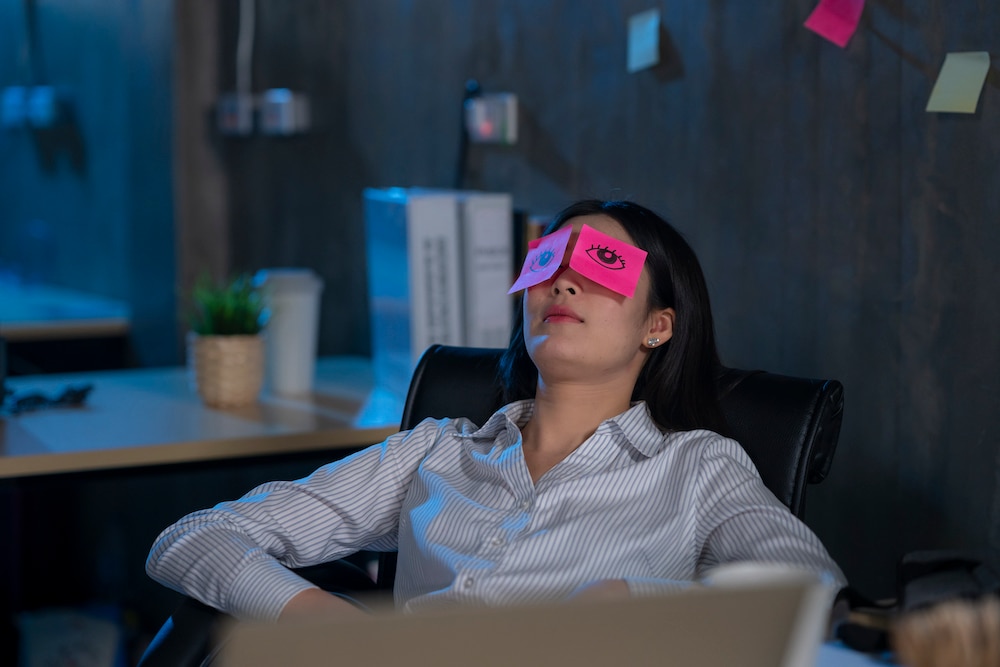Create a free profile to get unlimited access to exclusive videos, sweepstakes, and more!
Tired? Get more sleep if you want to survive
Sleeping Beauty had the right idea.

Have you been feeling zombified lately? Are your eyelids dropping? Do you lose track of how many cups of coffee you need to gulp down just to be quasi-functional? No, you don’t need turbocharged caffeine pills. What you need is more sleep.
If you suffer from sleep deprivation, the neurons that put you to sleep go into overdrive. It might sound ludicrous. There is no way you’re going to get things done when you’re about to pass out, but because our bodies are always trying to create balance when something gets thrown off, lack of sleep activates sleep neurons more and more until you finally give in. New research has now found that sleep also switches on changes in gene expression that help maintain the brain and body, contributing to recovery, longevity and ultimately, survival. That means lights out.
Researcher Anastasios Koutsoumparis of TU Dresden, who recently led a sleep study on C. elegans worms in Current Biology, found that you experience a stress response from not enough sleep.
“Cellular stress response following sleep deprivation could be understood as a safeguarding process that is caused by the overactivation of sleep-active neurons,” he told SYFY WIRE. “Sleep-neuron activity directly controls the localization of the FOXO protein in many other cells in the body.”
No wonder Aurora looked so eternally young in (the much creepier live-action) Sleeping Beauty. Never mind that she was put into an eternal slumber by Maleficent’s wicked spell, but the extra recuperation she got until that prince finally kissed her couldn’t have hurt. Maybe he should have waited a little longer. Sleep lets you recover from all the stresses you’ve faced. If you decide to deal with that stress by binging Netflix instead, sleep neurons are going to keep pushing until you wake up in the morning and wonder how you missed so many episodes.
The worms used by the research team had their sleep neurons genetically engineered to stay either permanently on or off. Because it influences every tissue and system in our bodies down to the molecular level, sleep is kind of a big deal. Falling asleep means that the body needs to shut down whatever keeps you awake.
Say you pull an all-nighter. Being deprived of sleep causes a genetic stress response that is meant to protect the body (hence survival) and can’t be reversed by even the most powerful jolt of caffeine. What is known as the FOXO transcription factor is involved in this.
"FOXO is a protein that facilitates the process of turning a specific segment of DNA into messenger RNA (mRNA) which in turn will be used as a template to create a protein," Koutsoumparis said. "Proteins that are produced by the binding of FOXO to DNA include, among others, proteins that control oxidative-stress resistance."
This is why you need antioxidants — oxidative stress. It can actually take years off your life. Not that supplements can really make up for losing hours of sleep, but there is always going to be some situation you can't avoid.
What the researchers wanted to find out was how exactly changes in the expression of protective genes are brought on by both sleep and not enough of it. Enter sleep neurons, also known as sleep-active neurons. Think of them as the literal nerve center for sleep. When your body needs to go to sleep, these neurons depolarize — meaning they zap signals between them to release a neurotransmitter, or chemical messages through which neurons communicate. These processes are started by signaling pathways that bring on tiredness. It is sleep neurons that transport FOXO so proteins can be produced to offset stress.
Sleep neurons are turned off by neurons that wake you up. The part of the brain where those sleep neurons are clustered is known as the ventrolateral preoptic nucleus (VLPO). The VLPO will send neurotransmitters, such as GABA, to shut down the the active areas in the brain. When you wake up, something similar happens with neurons in the brain stem and other regions of the brain. They send neurotransmitters that flip the switch on the VLPO so you're awake. Neurons that induce sleep need to be activated to a certain level.
"If we activate the sleep-neurons above the sleep-inducing threshold and up to a certain 'breaking' point, the organism will gradually slow down, relax and eventually fall asleep," said Koutsoumparis. "If we activate the sleep neurons further above that 'breaking' point, the organism will remain awake and will not go to sleep even though the sleep-neurons are over-activated."
Unlike humans, C. elegans worms only have one primary sleep neuron, which was much easier to manipulate than the thousands humans have. Both situations the worms were put in were extreme cases of sleep deprivation. Those which had their sleep neurons permanently turned on were awake and had a higher stress response that caused an increase in expression of protective genes. The worms which had the sleep neurons permanently turned off were also awake, and may have had less of a stress response, but they also didn’t get an extra boost of protective gene expression. This could only mean that the protective response is caused by overactive sleep neurons.
Koutsoumparis believes this is what is going on in our brains, even though we are much more complex than a nematode.
"Since sleep is an ancient and evolutionary conserved trait, we think that similar pathways are engaged in the higher organisms too," he said.
So next time you find yourself fighting to stay awake, blame the sleep neurons which are only trying to get you to recharge so you can survive.


























